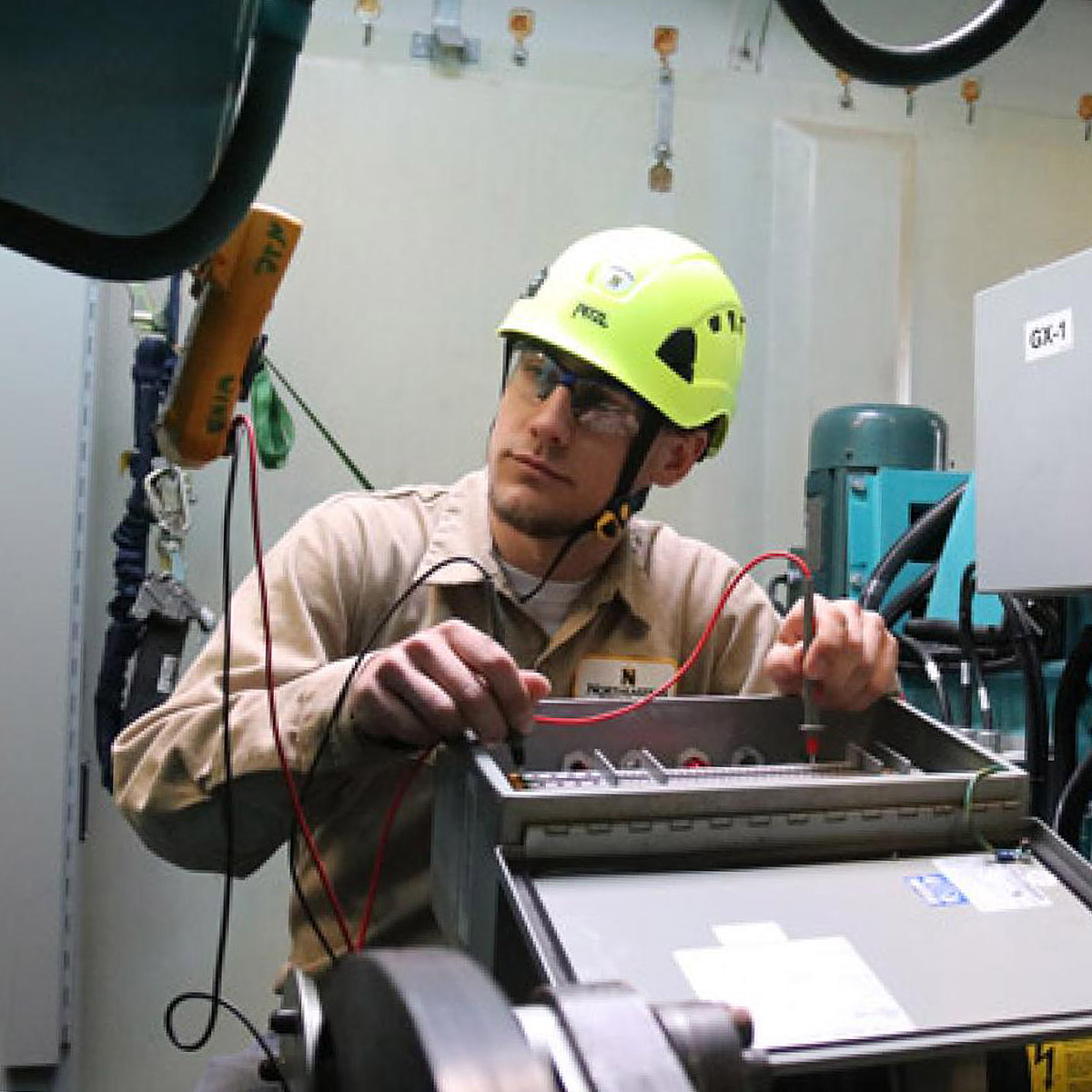Faculty


Staff

With stackable certificates in key areas such as Wind Technician, Industrial Safety, Industrial Maintenance, Industrial Electricity, and Industrial Control Systems, this degree is your ticket to success. You could be working in any number of industries, from food processing to material handling, process control, and advanced manufacturing.
The job opportunities are just as varied - think Quality Control Technician, Industrial Electrician, or PLC Technician. So why wait? Start your journey to a fulfilling career with this degree today!
When it comes to automation, there's no denying that programmable logic controllers (PLCs) are the backbone of many modern factories and manufacturing plants. These sophisticated devices act as the brains of the operation, controlling everything from the production lines to the complex machinery that powers them.
But what exactly is industrial automation, and which industries stand to benefit the most from this technology? From automotive and aerospace factories to food and beverage facilities, industries of all kinds are leveraging automation to streamline manufacturing processes, reduce costs, and increase efficiency.
By programming intricate systems that rely on hydraulic, pneumatic, and mechanical components, manufacturers are able to produce products more quickly, accurately, and safely than ever before. So while automation may seem like a futuristic concept, the truth is that it's happening right now - and it's playing a critical role in shaping the future of industry.
In today's modern world, technology has become an essential part of our everyday lives. With the rise in automation, the demand for skilled technicians who can handle control systems has never been higher.
Industrial automation technicians are responsible for maintaining, troubleshooting, and repairing automated systems in industrial facilities. With the rapid growth of automation in manufacturing, logistics, and various other industries, the need for expertise in this field is more prominent than ever before.
This presents a great opportunity for job seekers who are looking for a high paying job in a growing industry. The demand for automation systems technicians is expected to continue rising, making it an excellent option for those who want to pursue a career with significant growth opportunities in the long term.
As a technician, you can expect to work in an environment where mechanical, hydraulic, pneumatic, and electrical equipment are combined.
Don't worry if that sounds intimidating, because with the right work ethic and technical competence, you'll be more than up to the task. In fact, those are the qualities that employers most desire in their entry-level employees.
You'll likely have independence in your work, as most technicians work with limited supervision. But don't let that deter you - it's an opportunity to showcase your skills and demonstrate your proficiency. Overall, you can expect a challenging and rewarding work environment where your abilities will shine.

Northeastern's program stands out as a premier option for students looking to enter the workforce fully prepared. As a community college situated in a rural setting, the Residence Halls offer students a supportive community while facilitating a strong and focused learning experience.
With an emphasis on hands-on learning, students gain valuable experience as they learn how to operate and maintain advanced industrial machinery. But what sets Northeastern's program apart from others is the generous Financial Aid package available to all eligible students.
This aid allows for more resources and opportunities to support the student experience. With these benefits, Northeastern Junior College's Industrial Automation Training program is an excellent choice for those wishing to secure an impactful, meaningful career in the industrial automation industry.
Call and talk with one of the instructors before registering for classes.
Charles Guernsey
970-521-6740
charles.guernsey@njc.edu
Jason Winter
970-521-6737
jason.winter@njc.edu
Our approach is simple; put the industry components, operating systems, and tools in the student’s hands and make sure they know how to solve problems. We use industry tooling such as Fluke meters and E-RADs to perform the same jobs that will be performed in the field. We believe that students must be able to apply what they have learned in the classroom to the real world. Our training approach accomplishes two things; it gives the students firsthand knowledge of the equipment they will be using and it teaches them how to safely and efficiently use the equipment. We have a strong safety culture and that is the single most important thing to take away from the program.
Electro-mechanical and mechatronics technologists and technicians work with electrical and mechanical engineers. Most work full time, and some work more than 40 hours per week.
Xcel Energy Colorado provides funding to support students starting the Wind & Industrial program. Xcel Energy Colorado funding provides personal protective equipment such as hard hats, Lineman gloves, and insulated hand tools.
Students are required to purchase steel-toe or composite-toe boots, work gloves, and safety glasses. Students are allowed bring their own hard hats if they prefer.
According to the Bureau of Labor Statistics, employment of electro-mechanical and mechatronics technologists and technicians is projected to decline 3 percent from 2022 to 2032.
Despite declining employment, about 1,300 openings for electro-mechanical and mechatronics technologists and technicians are projected each year, on average, over the decade. All of those openings are expected to result from the need to replace workers who transfer to other occupations or exit the labor force, such as to retire.
Many of these technologists and technicians are employed in manufacturing industries, for which employment projections vary. Automation in manufacturing could affect this occupation in both positive and negative ways. While automation may replace certain responsibilities, electro-mechanical and mechatronics technologists and technicians will still be needed to operate and maintain the robotic equipment.
According to the Bureau of Labor Statistics, the median annual wage for electro-mechanical and mechatronics technologists and technicians was $60,570 in May 2022. The median wage is the wage at which half the workers in an occupation earned more than that amount and half earned less. The lowest 10 percent earned less than $40,300, and the highest 10 percent earned more than $99,390. Colorado's median is 18% higher at 71,430
In May 2022, the median annual wages for electro-mechanical and mechatronics technologists and technicians in the top industries in which they worked were as follows:
| Scientific research and development services | $70,540 |
| Transportation equipment manufacturing | $64,100 |
| Engineering services | $61,670 |
| Machinery manufacturing | $56,110 |
| Navigational, measuring, electromedical, and control instruments manufacturing | $50,330 |
Most electro-mechanical and mechatronics technologists and technicians work full time, and some work more than 40 hours per week.
Automation Technician (Automation Tech), Electro-Mechanic, Electromechanical Assembler (EM Assembler), Electromechanical Technician (EM Technician), Electronics Technician (Electronics Tech), Mechanical Technician (Mechanical Tech), Process Control Tech, Product Test Specialist, Test Engineering Technician (Test Engineering Tech), Test Technician (Test Tech)


